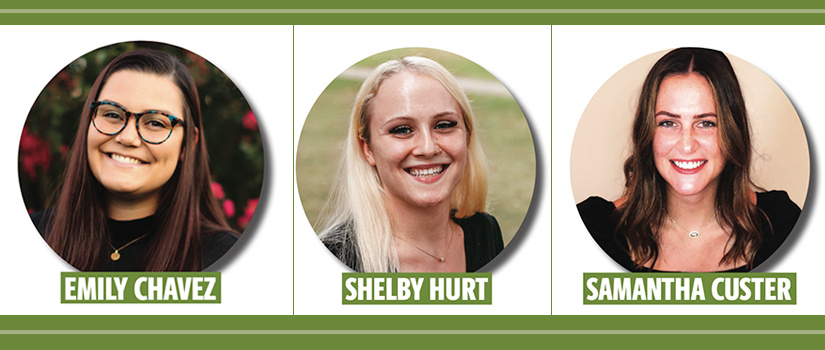The SJMC works to ensure students graduate with the skills needed to stand out in the job market. For first- generation college graduate Emily Chavez, ’19, being one of the first of three University of South Carolina students to earn the Certificate in Principles of Public Relations has given her resume an invaluable edge.
After graduating a semester early, Chavez wanted to do something productive with her time. Public relations sequence head Kelly Davis encouraged her to take the CPPR exam to demonstrate to employers her understanding of the field’s 13 KSAs — knowledge, skills and abilities.
The CPPR is the result of five years of research and development by public relations subject matter experts. It’s unique in that it requires applicants to be within six months of graduation — before or after — from an accredited college or university. Applicants must also have a degree in public relations or a related field and be members of the Public Relations Student Society of America.
“It’s not all black and white,” Chavez said. “You have to apply these concepts and theories to conceptual situations. I felt like I knew how to handle that because of the program at UofSC.”
The encouragement she received from J-school faculty to take the exam has given her the leg up needed to secure the position of assistant account executive at Finn Partners — one of the fastest growing, independent global marketing communications firms in the world.
“The amount of job interviews I had within the past year is ridiculous,” Chavez said. “Seventy-five percent of employers brought up the exam without me even having to.”
Shelby Hurt, ’19, also passed the CPPR exam. Hurt is continuing her studies in the Master of Mass Communication program at the J-school and is director of the student-led firm The Carolina Agency.
“I felt like someone took my entire degree and condensed it into a test,” Hurt said. “Being able to show that I have taken the extra step to demonstrate that I have these core competencies is going to make me stand out to future employers.”
Samantha Custer, ’20, was the third student to pass the exam. She had the experience of studying for and taking it during the height of COVID-19.
“The J-school was a great preparation for this course,” Custer said. “In school, I felt like I was so concerned with writing press releases, keeping up with the newest trends in AP style and making sure my writing ability was the best because that’s where I felt most of the pressure lied. This course was a great reminder that everything else we learned in the J-school is equally as important.”
According to these alumnae, the study-course developed by faculty members of the PRSA Educators Academy and produced by the Public Relations Society of America is very flexible if the applicant puts forth the effort.
“I think we would all be super familiar with the format by now after going to Zoom University the past semester,” Hurt said. “It ran just like a Zoom PowerPoint lecture, and I benefited from stopping and rewinding whenever something did not click.”
When it comes to the content of the study course, Chavez was strong in certain areas and weak in others. “I think everyone knows where their weaknesses are and for me it’s business literacy,” she said. “I was only getting one or two answers wrong on the quizzes because this is what we were taught. All it took was studying a little extra to get it at the top of our brain instead of the back.”
The Universal Accreditation Board has an aggressive marketing campaign with employers of new public relations graduates to make them aware of the CPPR and what it means in their hiring decisions. By including the CPPR on their resumes, these successful students have an opportunity to explain the certificate to a potential employer and set themselves apart from others.
